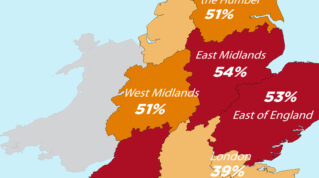Even as late as 2022, the war stories are still doing the rounds. Trusts have taken on schools without adequate due diligence and have then, after the transfer, discovered enormous liabilities.
Regardless of the drivers – an expansion model, RSC cajoling or simply altruism – too many trusts are making decisions based on insufficient evidence.
The recent schools white paper – the government’s latest push to regain the momentum of an academisation programme that has seen conversions drop from 1,000 per year to one-third of that figure – carries enormous risks in that respect. Unchecked expansion could see trusts absorb, merge or join other trusts without first having fully understood each other’s balance sheet of assets and liabilities.
So there is a fundamental question to be asked of ministers about how they intend to deliver on their promise: is the intention to model the system on the Falcon Education Trust, whereby trusts only hold on to a school for as long as it takes to prepare it for further re-brokering? Or will trusts have the requisite funding to invest in a longer-term development relationship?
Many executive heads and CEOs have achieved their success by turning around ‘failing schools’, where the be all and end all is improving pupils’ academic outcomes and achieving higher Ofsted ratings. All well and good, but we can’t afford complacency about the underlying business aspect of running successful schools.
We don’t buy a house premised on the vendor’s condition surveys, local searches and valuations, so why are so few trusts commissioning their own estate due diligence services? To fail to collect the data and use it as part of the transfer negotiations is, at best, to lose the opportunity for leverage. At worst, it’s a costly mistake.
The repercussions could be the reverse of the policy’s intention
For example, despite my offering to undertake a desktop survey and audit of the existing condition, compliance and valuation data for a successful Midlands trust, they proceeded without undertaking this basic tyre-kicking exercise. They only instructed me after the transfer, at which point I identified £5 million of building liabilities. Following a detailed mechanical and electrical (M&E) services survey, the kitchen had to be closed for failing to meet even the most basic of hygiene standards.
During the lockdown period, another client absorbed a secondary within its predominantly primary school MAT, again without undertaking their own detailed due diligence. They relied on a mixture of outdated, uncosted data from the school. Once again belatedly instructed to carry out post-transfer due diligence, I went on to identify liabilities amounting to £7 million over the next five years.
The liabilities now outstrip the valuation of the school, and its school conditions allocations (SCA), devolved formula capital (DFC) and reserves are now at risk, fire-fighting a large percentage of the £7 million to keep the school open and compliant. Neither school is eligible for the condition improvement fund (CIF), and nor do they meet the stated school rebuilding programme (SRP) criteria.
So at what cost and at what risk to a trust’s other schools will the government’s full academisation vision come? And where does this scenario leave advocates of general annual grant (GAG) pooling?
Both trusts feel that they were not told the truth by the various parties involved during the transfer process. Both feel that the service they were accorded by their professional advisors should have alerted them sooner to the extent of the liabilities. And both failed to appreciate that it is a question of buyer beware. One is considering their legal options.
Make no mistake: the government’s ambition for every school to be part of a MAT by 2030 could create a rush, especially for the ‘best’ schools. But if our only measure of that is what’s in the league tables and Ofsted reports, many MATs could find themselves facing circumstances that put their own successful schools at risk. Repeated across the system, the repercussions for school improvement could be the reverse of the policy’s intention.
Conversely, failure to deal with the risks at a systemic level could see the policy stall altogether. Academisation is not a shortcut to properly funding our school estate.















Your thoughts